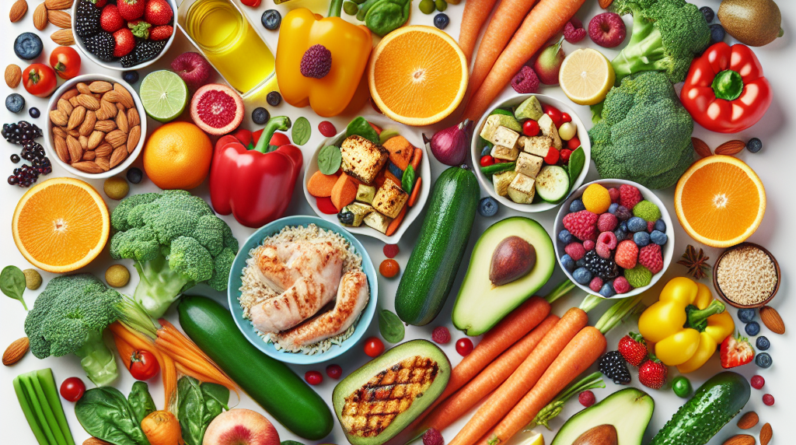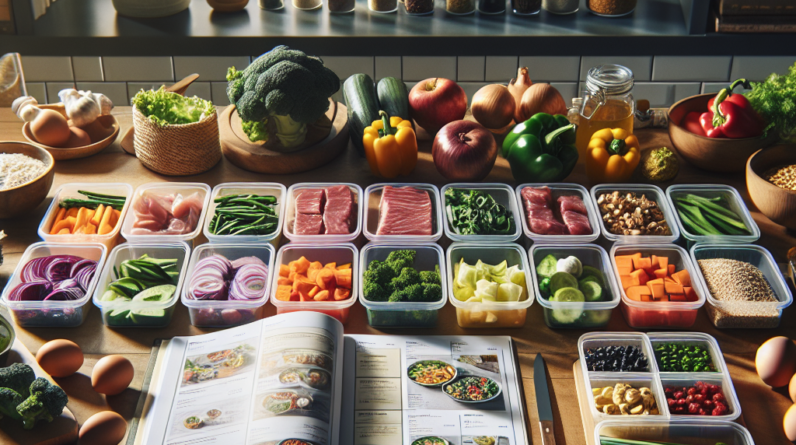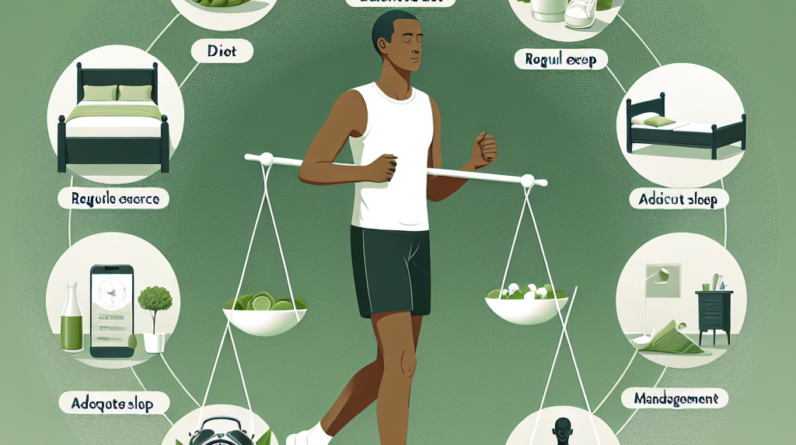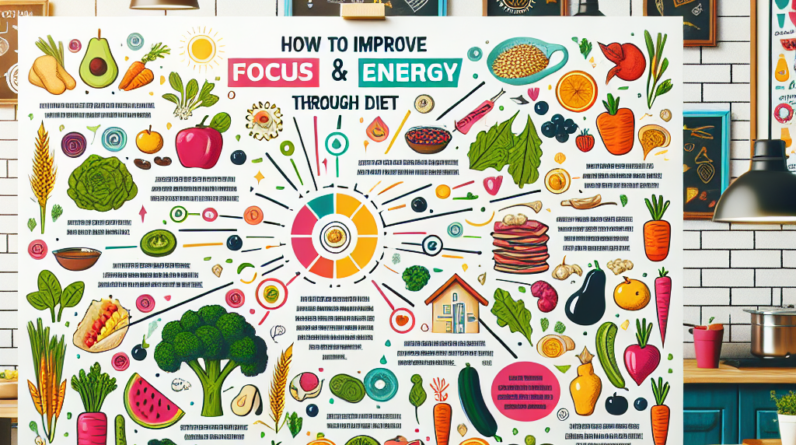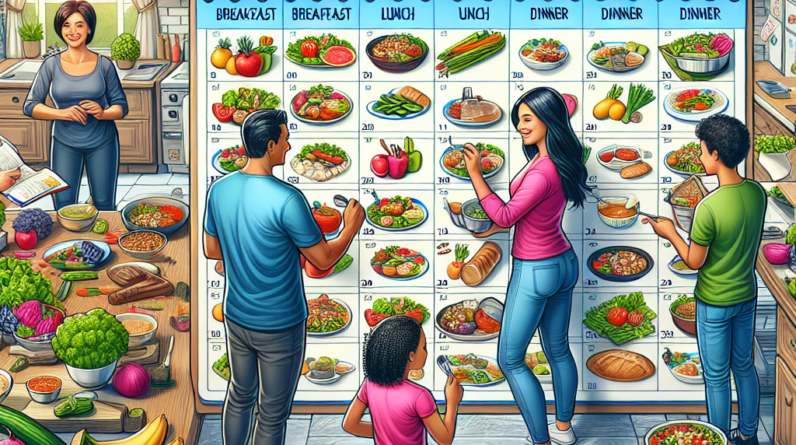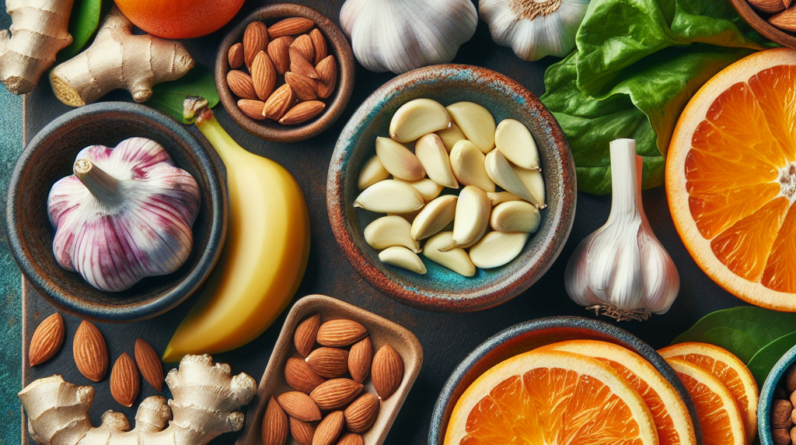
Fruits and Vegetables
The Power of Citrus Fruits
Let me tell you, citrus fruits are like little immune-boosting bombs. When I eat oranges, grapefruits, and lemons, I feel like I’m giving my body a major upgrade. These fruits are loaded with vitamin C, which is known for its immune-boosting properties. Honestly, when I start feeling a cold coming on, I just hit a juice bar and load up on these tangy delights.
Get a Huge Discount and Bonus! Try for 90 Days Risk Free
Vitamin C encourages the production of white blood cells, which are crucial for fighting off infections. I’ve found that starting my day with a glass of orange juice or tossing some lemon into my water makes a noticeable difference.
Plus, they’re super versatile! Whether you’re snacking on an orange, tossing lemons on your fish, or making a refreshing salad with grapefruit, the options are endless. Your tastebuds and your immune system will thank you!
Brightly Colored Vegetables
Have you ever noticed how colorful all the best veggies are? I’m talking about bell peppers, carrots, and greens like kale and spinach. Those bright colors aren’t just pretty; they indicate high levels of antioxidants. Antioxidants are like little warriors for your cells, fighting off free radicals that can weaken your immune system.
Incorporating a rainbow of veggies into my meals has been a game-changer. I love throwing together a stir-fry loaded with broccoli, carrots, and red peppers. Not only is it vibrant on the plate, but it’s also a powerhouse of nutrients. Can you say yum?
Don’t forget about the importance of leafy greens! They’re rich in vitamins A, C, and K. A big bowl of spinach or kale in my salad keeps me feeling strong and healthy. Seriously, go green or go home!
Fermented Foods
I might sound a bit quirky, but I’ve developed quite the love for fermented foods. Think yogurt, kimchi, and sauerkraut. These foods are packed with probiotics, which are beneficial for our gut health. And did you know that a healthy gut is directly linked to a strong immune system? It’s like the more I dive into these tasty treats, the more I understand how my body works.
When I reach for yogurt, I always opt for the ones with live cultures. It’s amazing how a little jar of fermented goodness can do wonders for my digestion and overall immunity. And let’s not forget about kimchi – it’s spicy and delicious as a side or a topping on just about anything.
Incorporating these foods into my diet is not just about the health benefits; they add such unique flavors. Now, I can’t imagine my meals without a little tang or crunch from these fermented goodies. Plus, it’s a great conversation starter!
Get a Huge Discount and Bonus! Try for 90 Days Risk Free
Whole Grains
The Benefits of Oats and Brown Rice
Okay, let’s talk whole grains! I swear by incorporating oats and brown rice into my diet. Not only do they give me sustained energy, but they also have a ton of fiber, which is essential for digestive health. When I’m feeling sluggish, a hearty bowl of oatmeal really kicks me back into gear.
Oats are also rich in beta-glucan, which is known to enhance the immune response by promoting the activity of macrophages—the cells that help fight off harmful bacteria. Just think of it as a little army in your body, ready to defend you!
Brown rice, on the other hand, is a fantastic source of magnesium, which plays a role in over 300 biochemical reactions in our bodies. It’s all about fueling my body with the right stuff. Swapping out white rice for brown has been an easy change that really packs a punch when it comes to health benefits.
Quinoa and Barley
Speaking of whole grains, I can’t get enough of quinoa and barley! These grains are not only delicious but also high in protein and fiber. I discovered quinoa a few years ago, and it’s become a staple in my diet. It’s super easy to cook and can be used in salads, bowls, or even as a side dish. And let’s not forget that it’s a complete protein, which is a huge bonus for anyone trying to get more plant-based foods in.
Need a Serious Energy BOOST? Huge Discount Try for 90 Days Risk Free
Barley, on the other hand, is often underrated but packs a serious nutrient punch. It’s loaded with beta-glucans too, which work wonders for my immune system. Plus, the chewy texture adds a nice twist to soups and stews.
Experimenting with different grains has not only been fun, but it’s also opened my eyes to how diverse a healthy diet can be. I encourage everyone to give these grains a go—you might just find a new favorite!
The Importance of Fiber
Let’s chat about fiber. It’s something we often hear about but might not fully appreciate. In my journey to improved health, I’ve learned how vital fiber is for a well-functioning digestive system. Foods like whole grains and various veggies keep things moving, which is super important for overall health.
A diet rich in fiber can also help lower inflammation, which is essential because chronic inflammation can zap your immune response. It’s fascinating how the food we eat can have such profound effects on our bodies when we treat it right!
Incorporating fiber into my meal planning has made a significant difference in my energy levels and immune function. I’d definitely recommend focusing on this often-overlooked nutrient. Trust me, your gut (and your immune system) will appreciate it!
Proteins
The Role of Lean Meats
Ah, lean meats! I gotta say, incorporating turkey, chicken, and fish into my diet has been phenomenal for maintaining my strength, especially during the colder months when colds and flus are more prevalent. Lean proteins are crucial for muscle repair and immune function. They help produce antibodies that fight off infections.
Having a protein-packed meal helps me feel satiated and energized. A simple grilled chicken breast with veggies is a go-to for me. I’ll even throw it in salads or wraps for a quick meal.
Fish, particularly fatty types like salmon, are rich in omega-3 fatty acids, which are noted for their anti-inflammatory properties. This means that not only are they beneficial for heart health, but they also support my immune system. So, don’t sleep on fish!
Good Health Solution is Easier Than Most People Think!
Take a Look for Yourself!
Plant-Based Proteins
I’ve been exploring plant-based proteins lately, and wow, they’re awesome! Beans, lentils, and chickpeas are absolute superstars. They’re not only packed with protein but are also rich in fiber and nutrients. Adding them to my meals has been a great way to boost my intake naturally.
I love making hearty lentil soups or chickpea salads. These ingredients not only give me the protein I need but also keep me full for longer. Plus, they’re super economical—my wallet is happy too!
I’ve even begun experimenting with alternatives like tempeh and tofu. They marinate beautifully and are perfect for adding to stir-fries or salads. It’s been a fantastic addition to my routine, and I appreciate how they contribute to my immune health as well.
Nuts and Seeds
Last, but definitely not least, are nuts and seeds! The beauty of these little snacks is the variety they offer in terms of nutrients—almonds, walnuts, chia seeds… the list goes on! They’ve become my go-to snack when I’m craving something crunchy.
Nuts are loaded with vitamin E, an antioxidant that helps shield our cells from damage. Eating a handful of nuts daily has become part of my routine. I love adding almonds to my breakfast or tossing walnuts into my salad; it’s all about crunch!
Seeds, especially hemp and flax, are also nutritional powerhouses that provide omega-3 fatty acids. They’re an easy addition to smoothies or yogurt. It’s honestly mind-blowing how much flavor and nutrients you can pack into one little serving of nuts or seeds!
Hydration and Broth
The Importance of Staying Hydrated
So, let’s wrap things up with hydration! I can’t stress enough how important it is to keep yourself hydrated for maintaining an optimal immune system. Water helps in the transportation of nutrients and flushing out toxins. I’ve learned that staying properly hydrated can really help stave off illness.
When I notice I’m not drinking enough water, I make a conscious effort to up my game. It’s surprising how just drinking a couple of extra glasses a day can make me feel more alert and energetic.
I’ve also started infusing water with slices of fruits or herbs—like cucumber or mint. Not only does this make hydration more enjoyable, but it’s also a fun way to sneak in some extra nutrients!
Homemade Broths
Another fantastic way to boost hydration and mood during cold season is sipping on homemade broth. I love making a big pot of chicken or vegetable broth. It’s so comforting and packed with nutrients. Bone broth, in particular, is known for its collagen and minerals that support gut health.
The process of making broth is simple. I throw in leftover bones, veggies, and herbs, let them simmer, and voila! It makes for a delicious base or sipping soup that’ll make you feel right at home.
Not only does broth keep me hydrated, but it also nourishes my body from within. Plus, there’s something incredibly soothing about a warm bowl of soup—especially on chilly days!
Herbal Teas
Lastly, don’t forget about herbal teas! I’ve become quite the enthusiast for chai, peppermint, and ginger teas. They’re not just cozy beverages; many herbal teas boast immunity-supportive properties. For instance, ginger is often praised for its anti-inflammatory effects.
Drinking a cup of steaming tea can warm me up and make me feel relaxed. Plus, many herbal teas are hydrating and come with various health benefits. It’s like a hug in a mug!
So, whether I’m enjoying a cup in the morning or unwinding at night, herbal teas are my go-to for boosting my immune system while enjoying a moment of relaxation.
FAQ
1. Can fruits and vegetables really boost my immune system?
Absolutely! Fruits and vegetables are rich in vitamins, minerals, and antioxidants, which are essential for a robust immune system. Citrus fruits, in particular, are famous for their high vitamin C content, which helps in the production of white blood cells to fight off infections.
2. What types of proteins are best for immunity?
A great mix of lean meats, plant-based proteins, nuts, and seeds is ideal. Lean meats provide essential amino acids, while plant-based proteins like beans and lentils offer additional fiber and nutrients, contributing to overall health.
3. Is hydration really that important for immunity?
Yes, staying hydrated is essential! Water helps transport nutrients in the body and flush out toxins. Additionally, liquids like broths and herbal teas can provide hydration and nutrients simultaneously, which is super beneficial for immune function.
4. How can I incorporate more fermented foods into my diet?
Start by adding yogurt to your breakfast, snacking on some pickles, or using kimchi as a side dish. Fermented foods are super versatile and can be included in salads, sandwiches, or even on their own as snacks!
5. Do whole grains really contribute to a healthy immune system?
Definitely! Whole grains are high in fiber and nutrients, promoting good digestion and reducing inflammation. They also provide sustained energy, which can help keep your immune system functioning optimally.




